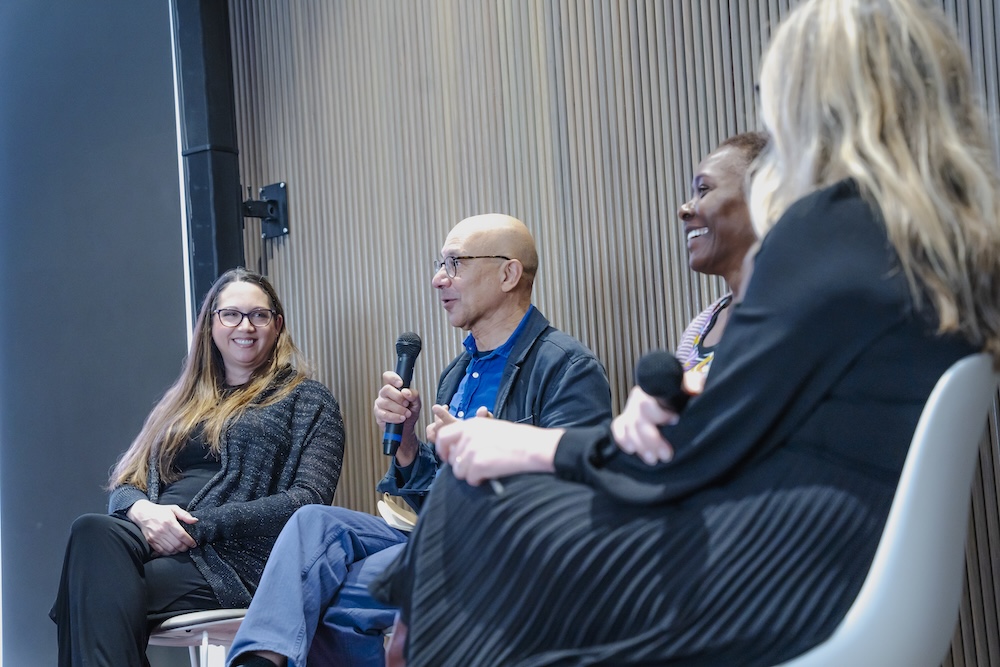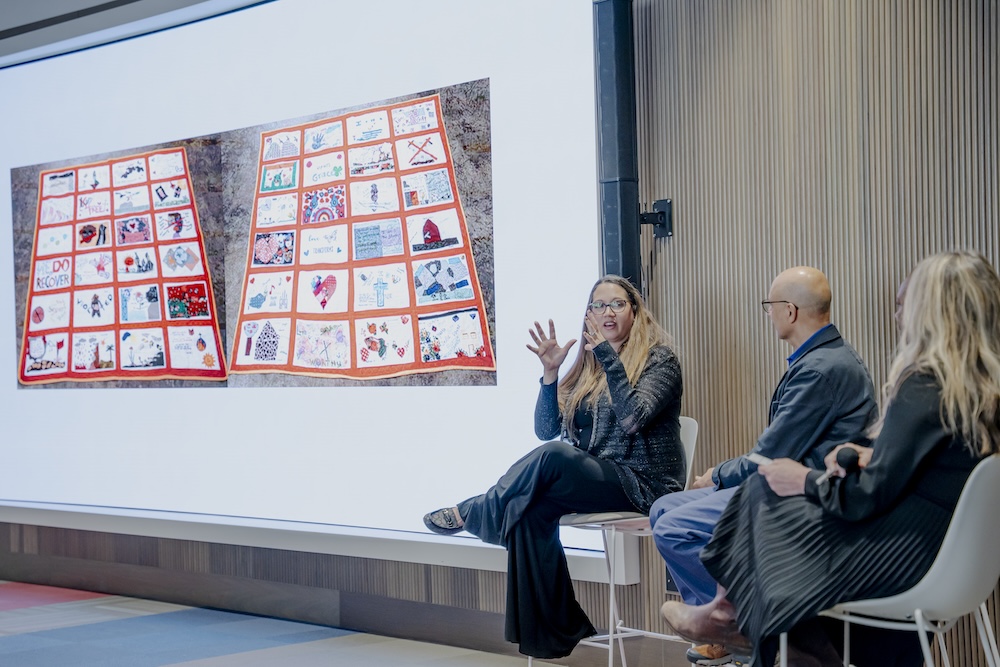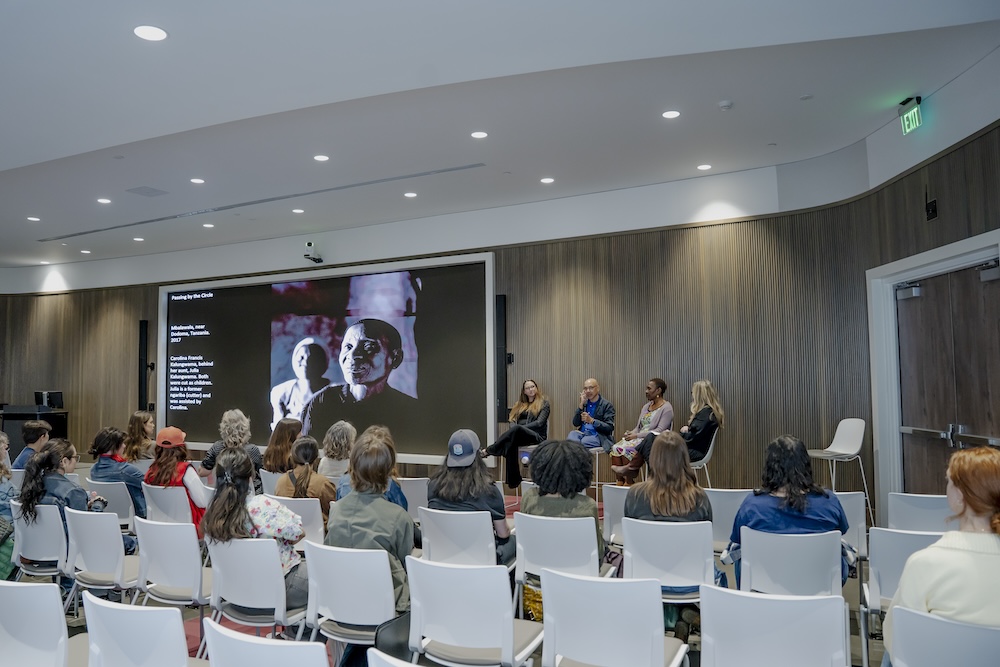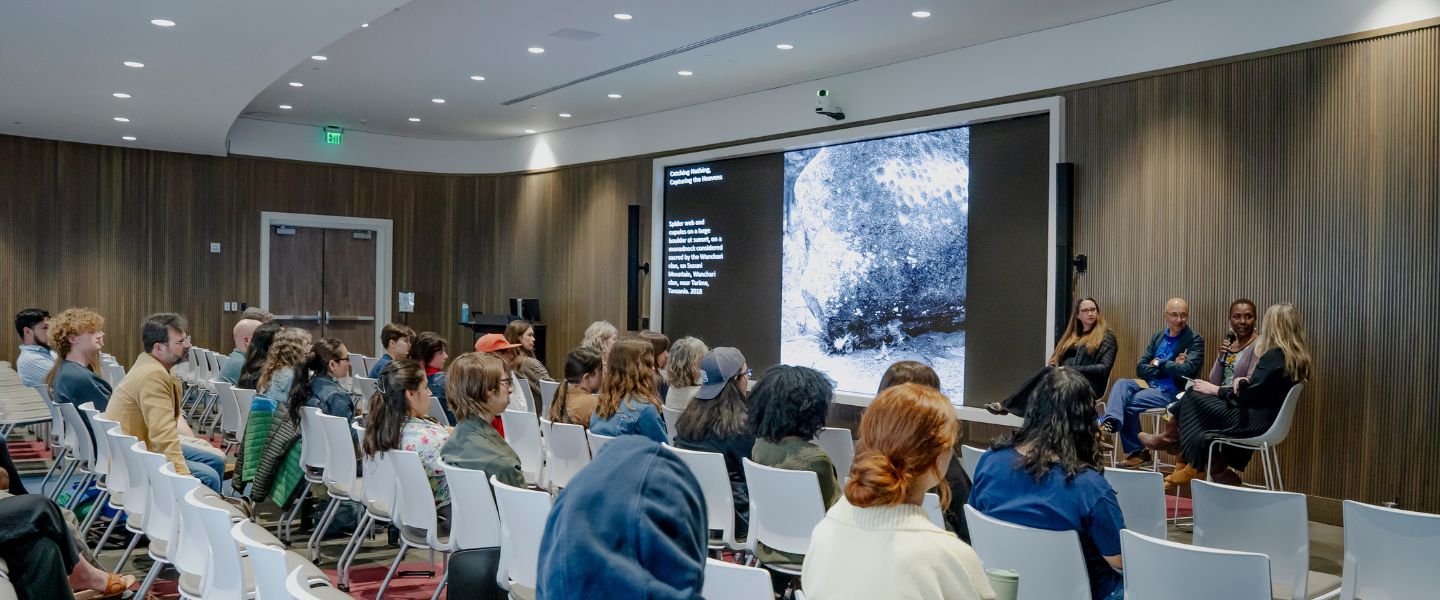Conversation highlights how different disciplines unite in service, empathy and healing
 Belmont University welcomed acclaimed photographer Pradip Malde and a distinguished panel of leaders for "Vapor: Photographing the Unseen," a powerful conversation exploring the connections between loss, love and photography's role in social change. This event — part of the Creative Professionals Lecture Series funded by a Tennessee Arts Commission grant and organized by the Watkins College of Art — highlighted how art and empathy can amplify marginalized voices and confront social injustices.
Belmont University welcomed acclaimed photographer Pradip Malde and a distinguished panel of leaders for "Vapor: Photographing the Unseen," a powerful conversation exploring the connections between loss, love and photography's role in social change. This event — part of the Creative Professionals Lecture Series funded by a Tennessee Arts Commission grant and organized by the Watkins College of Art — highlighted how art and empathy can amplify marginalized voices and confront social injustices.
The panel, moderated by Dr. Jennifer Crowell Thompson, assistant dean for undergraduate health sciences and chair of the School of Social Work, featured Malde alongside Kristin Beckum, director of founder's outreach at Thistle Farms, and Dr. Olivia Bahemuka, assistant professor of nursing at Belmont.
Visualizing Trauma, Resilience and Change
Malde, a 2018 Guggenheim Fellow, presented his exhibition "From Where Loss Comes," currently on display in the Leu Gallery at the Bunch Library. The photography collection takes an unblinking look at female genital mutilation (FGM) in Tanzania, documenting the experiences of women affected by this practice and the activists working to end it.
During the discussion, Malde reflected on the deeply personal nature of his photographic process. He detailed how he builds trust and rapport, emphasizing the importance of being fully present as a person before a photographer.
“One practice I consistently adhere to is not immediately reaching for my camera,” he explained. “Instead, I focus on being there as a person first, engaging and understanding without the barrier of the lens.”
This approach enabled him to forge genuine connections with the women he photographed, including those involved in the practice of FGM. By prioritizing relationship-building over immediate photographic capture, he created a collaborative environment aimed at fostering change rather than casting judgment
The Power of Empathy Across Disciplines
The panel explored how empathy and vulnerability function as essential elements in creating meaningful change across different disciplines. Each panelist spoke about how their work — whether through art, health care or social services — requires deep human connection.
Beckum provided powerful insights from her experience as both a survivor and advocate at Thistle Farms. This Nashville-based nonprofit provides a two-year residential program for women survivors of trafficking and addiction.
Thistle Farms has recently been working on The Remnant Quilt — a project where survivors stitch together pieces of fabric to form a quilt that narrates their personal histories. Each square of the quilt represents a unique story of trauma or triumph, making it a tapestry of resilience and recovery. The quilt is in progress and will be on display at Thistle Farms in September.
survivors stitch together pieces of fabric to form a quilt that narrates their personal histories. Each square of the quilt represents a unique story of trauma or triumph, making it a tapestry of resilience and recovery. The quilt is in progress and will be on display at Thistle Farms in September.
Regarding nursing and health care, Bahemuka reflected on how her background and experiences conducting global health initiatives in Uganda and other countries have shaped her understanding of compassion and service.
“Being present is essential,” she said. “You can easily go through the motions, but truly being present means actively engaging and focusing on the needs of those in your care, seeing each patient as an individual with unique needs."
Throughout the discussion, the panelists discovered remarkable commonalities in their approaches to service and healing despite working in vastly different fields. They agreed that community, vulnerability and empathy are crucial elements in creating meaningful change.
Crowell Thompson noted how social workers, like artists and health care providers, must practice deep humility.
"One of the most important lessons we try to instill in our students is this idea that we go where the client wants to go, that they're the author of their story," she explained.
Creating Change Through Art and Advocacy
The event highlighted the intersection of art and advocacy, particularly focusing on women's experiences and resilience. Malde's powerful photography serves as a catalyst for difficult conversations about cultural practices that harm women, while Thistle Farms demonstrates how creative expression can be integrated into healing journeys for survivors.
 “Returning to my birth country after decades, my aim was not just to document, but to engage deeply with the community to spotlight the resilience amidst these challenging cultural practices,” said Malde.
“Returning to my birth country after decades, my aim was not just to document, but to engage deeply with the community to spotlight the resilience amidst these challenging cultural practices,” said Malde.
Echoing Malde’s emphasis on community engagement and personal impact, Beckum shared insights from her experiences at Thistle Farms, illustrating how small, intentional actions can create substantial change.
"Our biggest motto at Thistle Farms is that love is the most powerful force for change in the world,” said Beckum. “It's not about grand gestures; it's about the cumulative impact of small acts of love and service performed by everyone. These acts collectively heal communities across the globe. Simply put, love heals."
Malde’s exhibition "From Where Loss Comes" will be on display in the Leu Gallery at the Bunch Library until May 23. The Belmont community and the public are invited to view Malde's compelling work, which serves as a testament to art's ability to illuminate difficult truths and inspire social change.
Visit the exhibit

